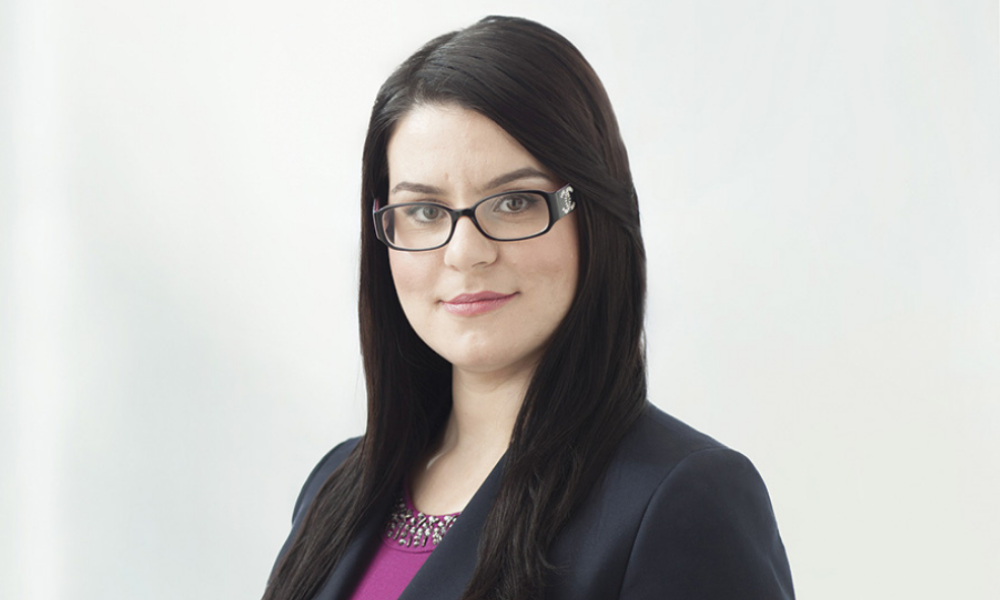Complex case requires all allegations of negligence to be addressed, Pacheco says

This article was created in partnership with Neinstein Personal Injury Lawyers
A recent Court of Appeal decision granted a new trial for a severely injured young girl, and the lawyers at Neinstein Personal Injury Lawyers are hopeful it will give their plaintiff the opportunity to have the entirety of her case decided by a court.
Sabrin Farej was profoundly disabled at birth. She has level 5 cerebral palsy, is G-tube fed and will require 24-hour care for the rest of her life, and Sabrin and her family have struggled to find the help she needs, especially over the course of the COVID-19 pandemic. In Farej v. Fellows, Sabrin, her mother and her brothers advanced a series of allegations of negligence against the obstetrician who delivered Sabrin, citing what was “essentially a sequential list of mistakes,” says Daniela Pacheco, partner and Medical Malpractice Lawyer at Neinstein.
“It’s a difficult case in the sense that the most important part happens in 26 minutes – it’s a really tight timeline,” Pacheco says, adding that after a long trial that dealt with lengthy and complex evidence the judge ultimately rejected Sabrin’s claims.
“But from a review of the trial judgment, in our opinion, the judge did not engage in the individual allegations and it’s important for a trial judge to take care about how they address them. They aren’t just a piece of evidence or part of the argument, they’re not on the fringes: that is the core of the case.”
Lawyers formulate detailed allegations because the law requires plaintiffs to lead standard of care expert evidence that is particular, and plaintiffs need an expert trained in that medical specialty to spell out exactly what it is that they say a physician did wrong. Those experts engage in a thorough analysis, provide extremely detailed reports and give days and days of evidence. What’s the point of requiring that, Pacheco asks, if the judge can, without any reasons at all, disregard some of those very technical allegations of negligence? In situations where a judge does not want to decide on an allegation of negligence, it’s important to offer some sort of explanation in the decision for not doing so, she adds.
On appeal, Neinstein argued that the reasons for judgment were inadequate in respect of several allegations that were central to the appellant’s case on liability. The defendant argued that the gist of what the trial judge was thinking was clear, but Pacheco finds that an interesting position given medical malpractice cases are so heavily detail-oriented and “if the experts that testify for you aren’t particular and detailed, the defendants are going to argue to have the judge disregard it.”
Ultimately the appeal court agreed with some – but not all – of the arguments Neinstein put forth. The decision states that “the trial judge’s reasons with respect to causation and her reasons dealing with one of the several allegations of negligence are inadequate. On these two issues, the reasons do not reveal critical findings that had to be made, and do not explain how the trial judge arrived at some of the conclusions she did reach. This court cannot meaningfully review her decision on those two issues. The inadequacies in the reasons, taken together, require the setting aside of the judgment dismissing the action. I agree with the appellants that, in the circumstances, a new trial is the appropriate remedy.”
Following release of the initial decision, the defendant made further submissions to the Court of Appeal. The defendant argued that because there were only two areas identified where the appeal court said the judge didn’t give adequate reasons, the new trial should only focus on those narrow issues. Pacheco argued against that, and the Court of Appeal agreed that the new trial must be on all issues because they’re too interconnected to be parsed out.
“We’re talking about very complex points that occurred in a small space of time, so it would be tying a new judge’s hands behind their back if they had to only decide a tiny part of it but hear all of the evidence in order to know the context,” Pacheco says. “That would prevent the judge from making a fulsome, clear opinion.”
The defendants have filed an application to appeal to the Supreme Court of Canada. Pacheco is confident about the evidence presented at the first trial and feels that had it been analyzed properly there would have been a different outcome.
While in her view the Court of Appeal didn’t go far enough, Sabrin at least has an opportunity to go back to a trial court and present her case to a judge who hopefully this time addresses the different concerns the expert has. People deserve the right to be heard, Pacheco notes: that’s critical for participants in the justice system. And Neinstein brings a top-tier level of advocacy to ensure their clients get a fair assessment of their case.
“Hopefully judges will continue to view it as important to address the allegations of negligence that are in front of them,” Pacheco says. “Not only do plaintiffs deserve that, but it’s one of the reasons we’re required to lead expert evidence and judges are required to give reasons – so the profession and the community know what the standard of care is for the professionals we work with.”
Daniela served as chair of the Medical Malpractice Section of OTLA in 2020, and is a regular contributor for their Medical Malpractice Newsletter. Additionally, she recently served as Public Relations Liaison within the Executive at the Women Lawyer's Forum of the OBA. Daniela served as Chair of the Women's Caucus for two consecutive years and was awarded an OTLA Women's Caucus Award in 2017.










